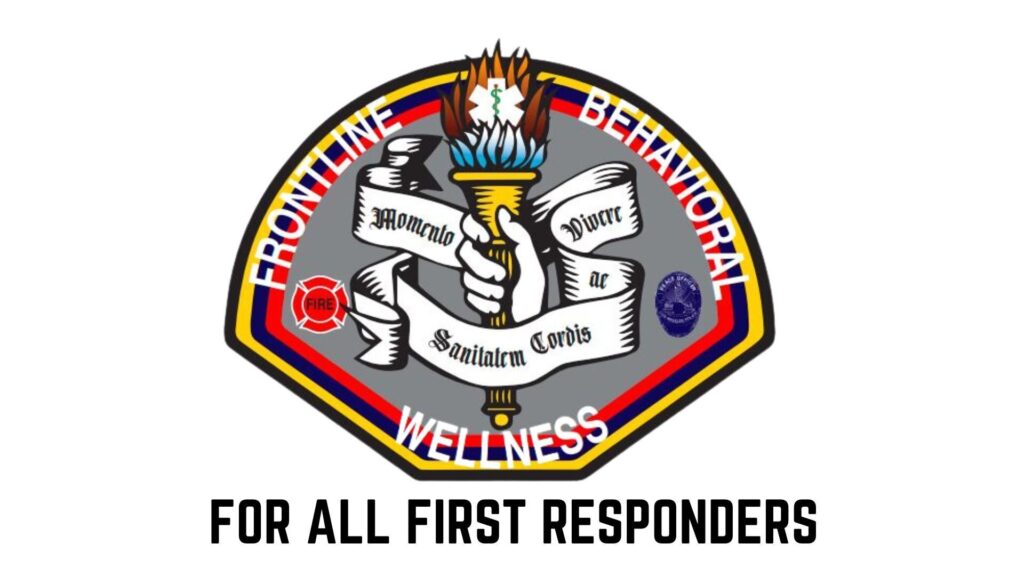Outpatient Therapy for First Responders
Addressing mental health problems timely can help first responders improve their quality of life and get back to work as quickly as possible.
Why We Care
First responders are critical in saving lives and alleviating injuries during emergencies. However, repeated exposure to stress and trauma puts these heroes at higher risk for mental health disorders such as anxiety and PTSI (post-traumatic stress injury).
Recent studies reveal 30% of first responders develop mental health conditions, including PTSI, compared with 20% in the general population. Unfortunately, the stigma associated with mental health conditions often prevents these heroes from seeking appropriate care. Our programs are designed to treat the various conditions that impact first responders.

Our Outpatient Mental Health Treatment
We offer outpatient mental health treatment, where first responders can access care while commuting from home. In our outpatient treatment, we ditch the hospital so that first responders with mental health disorders receive health services in an office or clinical setting.
At our outpatient, first responders can receive either structured or flexible treatment, meaning they get to choose much they want to come in per week. With structured treatments, they can come in several times, but we can also treat someone coming in once per week.
Our outpatient treatment is ideal for people who don’t require round-the-clock care and first responders who prefer keeping their conditions to themselves.
During outpatient treatment, first responders will receive specialized treatment for their mental and behavioral health. Treatment professionals at Frontline Behavioral Wellness are experienced in how to address the unique challenges of emergency responders.
Benefits of First Responder Mental Health Treatment
Mental health treatment is designed to help first responders tackle the various mental disorders related to their job. The treatment involves various therapy sessions that allow patients to learn more about themselves and gain new coping skills. Therapies also include learning about their conditions and how to identify their symptoms.
The following are some of the benefits of mental health treatment:
- Provides relief from depression, PTSI, anxiety, and other mental conditions
- Enhances self-acceptance and self-esteem
- Improves communication and interpersonal skills
- Provides first responders with peer support
- Empowers one to change self-defeating behaviors and habits
- Equips one with skills to manage stress more effectively
What We Can Treat
For first-time responders such as EMTs, firefighters, and police officers, work-related stress is an ongoing concern. Experiences related to acute stress play an integral role in the development of several mental health conditions. Our outpatient treatment program treats a variety of substance abuse and mental health problems that first responders face.
The following are some of the conditions that Frontline Behavioral Wellness treats:
PTSI occurs when a victim experiences overwhelming, stressful events. A recent survey shows among the surveyed first responders, 37% of firefighters, 35% of police officers, and 10% of EMTs either experience or meet the criteria for PTSI.
Severe stressful events are undeniably the most crucial risk factor for significant episodes of depressive disorder. Depression was reported to impact 31% of all first responders.
Constant exposure to traumatic and stressful events can trigger anxiety disorders in first responders. The prevalence of anxiety among first responders is 28% for EMS personnel, 19% for police, and 38% for paramedics.
First responders suffer from addiction to drugs and alcohol, on top of mental health issues. In most cases, substance abuse begins as an effort to cope with symptoms of PTSI, which eventually snowball into a big problem. A recent study estimates 20% of all first responders with PTSI have a substance use disorder.
First responders are at an elevated risk for suicide related to their harsh work environments, cultures, and stress. In 2020, 127 suicide cases were reported among EMTs and firefighters.
When to Seek Professional Help for Mental Health
There are several factors that may contribute to a first responder seeking professional support for their mental health. When the stressors or challenges of working on the front lines become too much, it is essential for first responders to seek the help that they need.
The following are some of the signs it is time to seek professional help:
Stress is becoming unbearable:
When stress overtakes one's life and starts affecting their daily life and those close to them, it is a sign they need help
Debilitating anxiety:
Anxiety occurs when the brain responds to a perceived threat. if one is experiencing repeated worry even when the threat is no longer present, it is essential to seek help
Severe depression:
If depression impacts one's ability to function, they should seek help and treatment
Work problems:
One should seek help if they have difficulties concentrating or completing work or academic tasks
Suicidal thoughts:
When one experiences frequent thoughts about death and drying, they need immediate treatment
How Treatment Can Help
First responders diagnosed with mental illnesses can achieve strength and recovery by participating in individual or group treatment. There are several types of treatment available at outpatient clinics. These include:
Psychotherapy
Psychotherapy or counseling is one of the most effective treatments for mental health disorders. During the sessions, a mental health professional encourages patients to talk out their problems. The treatment focuses on relaxation exercises, coping skills, and stress management skills. Some common types of psychotherapy treatment include cognitive behavioral therapy (CBT) or dialectical behavior therapy.
Trauma Counseling
Since PTSI is a very common mental health issue amongst first responders, we employ trauma-informed care alongside other therapeutic treatment techniques.
Family Therapy
Self-help and support groups can help patients gain valuable insights into their problems. The program provides access to friendship, resources, support, and tips on how one can live with their condition.
Find Help in Costa Mesa as a First Responder
First responders are typically the first people at the scene of dangerous or troubling incidents. Over time, exposure to traumatic events can take a toll on the mental health of these professionals. If not treated, mental health conditions can lead to irreparable harm not only to first responder’s life but also to their families and the communities they work in.
Frontline Behavioral Wellness offers highly effective outpatient mental health treatments in Orange County designed to put patients on a solid path to full recovery. We understand no treatment works for everyone, which is why we offer custom treatments or a combination of treatments that work best for individual patients.


Reach Out Today
To learn more about if Acera Health is right for you, and what to expect, contact us Today!
"*" indicates required fields
3100 Bristol St. Suite # 250 Costa Mesa, CA 92626
info@acerahealth.com
DHCS license number: MHBT220400
DHCS license expiration date: July 20, 2024
DSS license number: 306006131 & 306006072



